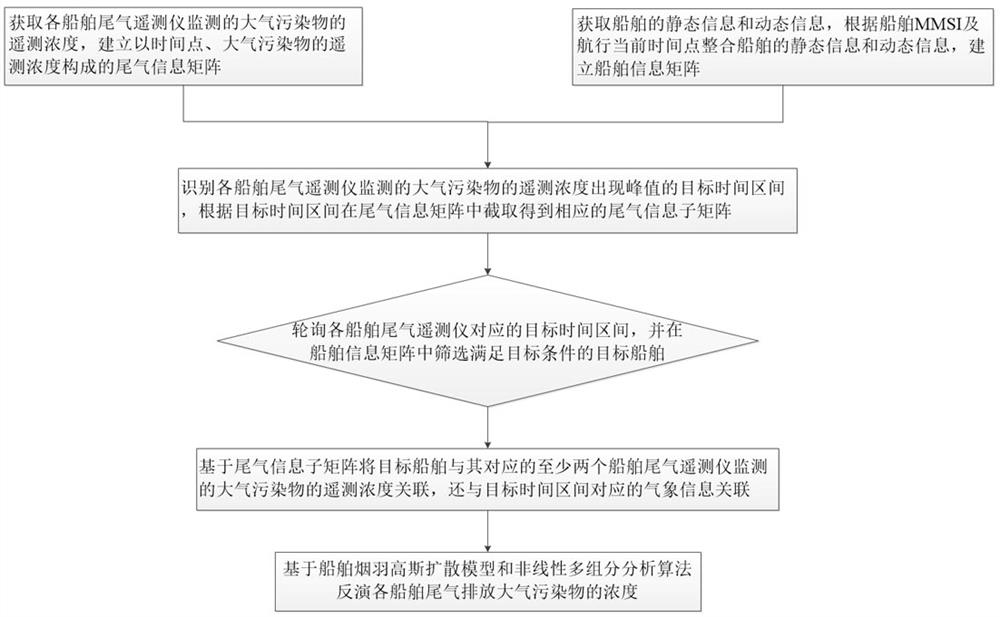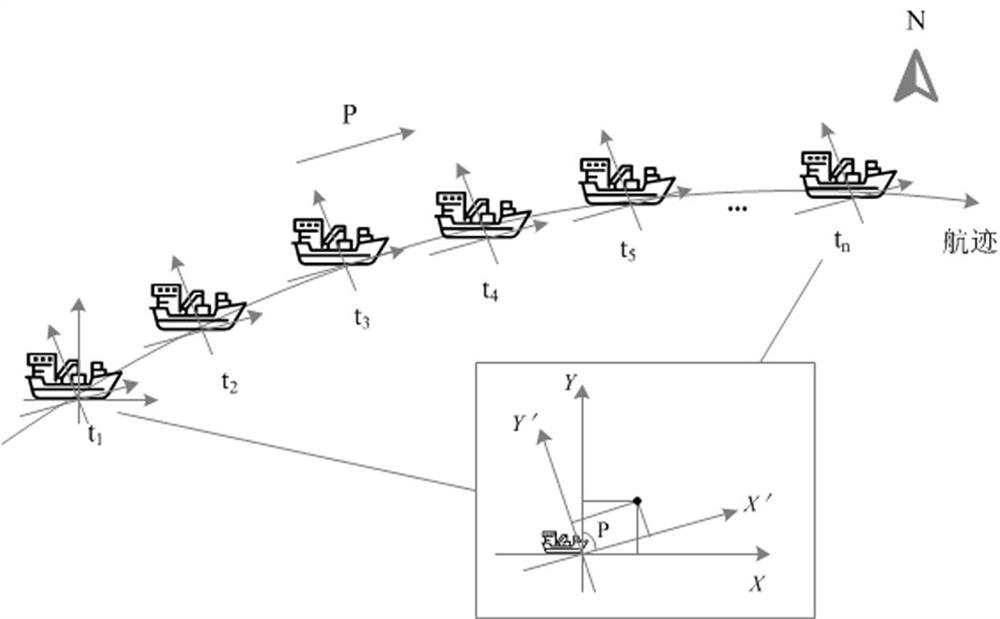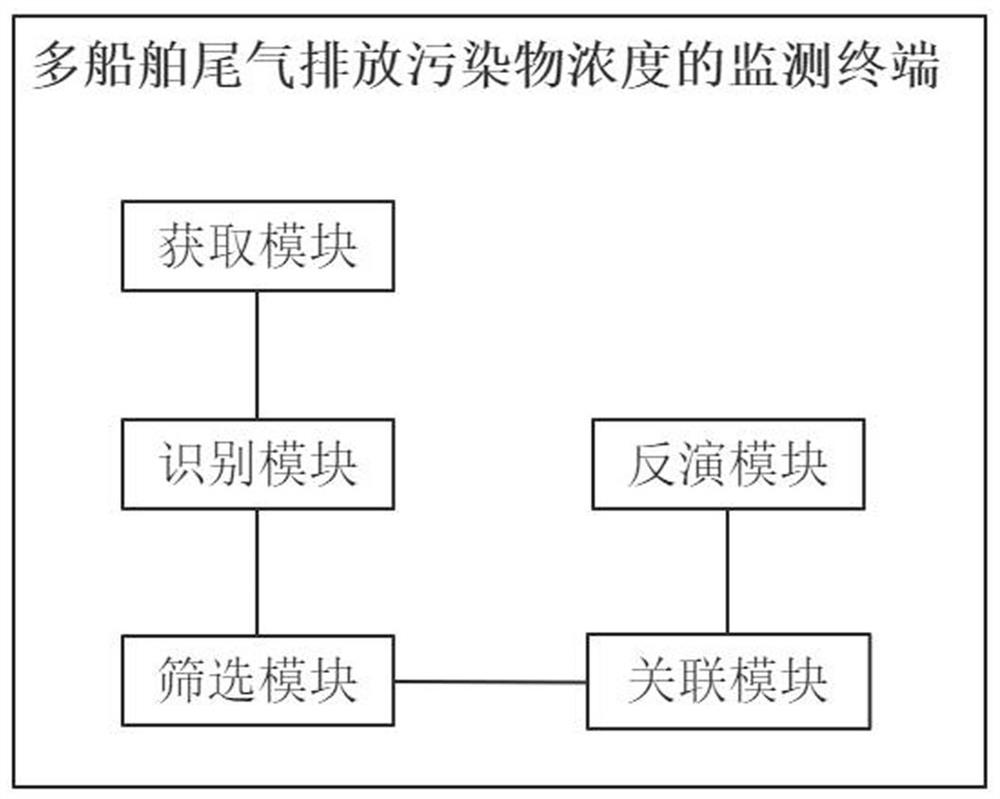A monitoring method, terminal and system for monitoring the concentration of pollutants emitted by exhaust gas from multiple ships
A technology for pollutant concentration and ship exhaust, which is applied in the analysis of gas mixtures, measuring devices, instruments, etc., can solve the problems of fuel sulfur content monitoring, lack of effective means, and inability to meet the monitoring needs of ships sailing at the same time, and achieve monitoring efficiency. The effect of improving, improving efficiency, and reducing the requirements of data processing capacity
- Summary
- Abstract
- Description
- Claims
- Application Information
AI Technical Summary
Problems solved by technology
Method used
Image
Examples
Embodiment 1
[0061] This embodiment is in the ship emission control area, taking the port area as an example to illustrate, and the layout R There are two ship exhaust remote meters, and the telemetry areas of each ship exhaust remote meter are independent of each other. in, R is an integer greater than 1.
[0062] Such as figure 1 As shown, the monitoring method of the multi-vessel exhaust emission pollutant concentration of the present embodiment comprises the following steps:
[0063] S1. Get R The telemetry concentration of atmospheric pollutants monitored by a ship exhaust telemeter, and a digital exhaust information matrix composed of time points and telemetry concentrations of atmospheric pollutants is established. D 1 , D 2 ,..., D R ;
[0064] Among them, the types of air pollutants include SO 2 , CO 2 , NO x , PM, etc., and the collection time of the ship exhaust telemeter is generally 500ms, then the exhaust information matrix D j The expression of is as follows:...
Embodiment 2
[0144] The difference between the monitoring method of the multi-vessel tail gas emission pollutant concentration of the present embodiment and the embodiment 1 is:
[0145] The target condition only retains the condition (2) to meet the needs of different applications; that is, the target condition of this embodiment is:
[0146] The distance between the coordinate position of the ship and the position of the hit point of the corresponding ship exhaust telemeter is less than the effective detection distance of the corresponding ship exhaust telemeter;
[0147] Among them, the effective detection distance of the ship exhaust telemeter is related to the wind speed and wind direction in the meteorological information, generally in the range of 500-2000m.
[0148] Other steps can refer to embodiment 1.
[0149] Correspondingly, the monitoring terminal and the monitoring system make corresponding adjustments.
Embodiment 3
[0151] The difference between the monitoring method of the multi-vessel tail gas emission pollutant concentration of the present embodiment and the embodiment 1 is:
[0152] The monitoring method is applied in the inland river area, and the layout of the exhaust remote detectors of each ship is as follows: Figure 6 shown;
[0153] Other steps can refer to embodiment 1.
PUM
 Login to View More
Login to View More Abstract
Description
Claims
Application Information
 Login to View More
Login to View More - R&D
- Intellectual Property
- Life Sciences
- Materials
- Tech Scout
- Unparalleled Data Quality
- Higher Quality Content
- 60% Fewer Hallucinations
Browse by: Latest US Patents, China's latest patents, Technical Efficacy Thesaurus, Application Domain, Technology Topic, Popular Technical Reports.
© 2025 PatSnap. All rights reserved.Legal|Privacy policy|Modern Slavery Act Transparency Statement|Sitemap|About US| Contact US: help@patsnap.com



